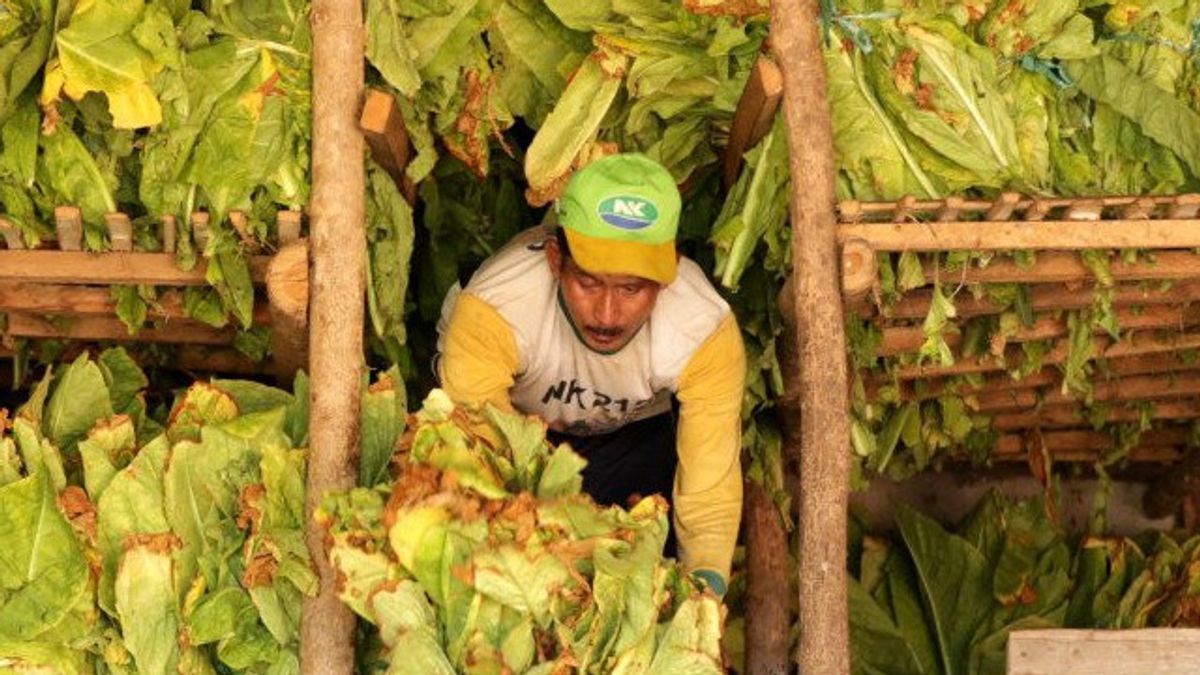JAKARTA - The government's plan to increase excise tariffs on tobacco products in the 2022 fiscal year is not impossible to have a negative impact on the tobacco products industry. As stated in Law Number 6 of 2021 concerning the State Revenue and Expenditure Budget for Fiscal Year 2022, the target for tobacco excise duty (CHT) in 2022 is approximately Rp. 193 trillion, an increase of 11.9 percent (Rp. 20 trillion) from the target in 2021. .
The member of Commission XI Willy Aditya who is also the Deputy Chairman of the National Democracy Faction said that in addition to reducing IHT productivity, the increase in CHT will also enrich the illegal cigarette market, especially in the current recovery situation.
In addition, Willy Aditya, a member of the DPR from one of the central areas of the national tobacco industry, Madura, stated that he continuously received complaints and objections to the increase in CHT rates from workers in the IHT sector and farmers for their survival.
He also stated that farmers have also moved to send letters directly to President Jokowi.
"Don't let us have to bear the consequences for the increasing number of farmers and SKT workers who are affected in this difficult time," Willy said in his statement, quoted Monday, November 29.
Not only farmers in Madura, farmers in other tobacco centers on the island of Java also have the same anxiety. Secretary General of the Association of Indonesian Tobacco Farmers in the Special Region of Yogyakarta, Triyanto, said the excessive increase in CHT tariffs would damage the IHT trade chain by forcing factories to continue to reduce their production.
"If production is reduced, the absorption of raw materials supplied by farmers will also decrease. Not only farmers, factory workers are also facing a difficult situation," said Triyanto.
Meanwhile, Deputy Chairperson of PBNU Mochammad Maksum Machfoedz said that many government policies on CHT that have been carried out to date are quite tendentious towards acceptance without any portion of justice for the industry, laborers, and tobacco farmers. The government pays less attention to compensation for the CHT policy on IHT farmers and workers.
"Many studies conducted by certain parties only corner and turn off IHT," he said.
Due to these considerations, Maksum Machfoed z hopes that the government will be more careful with the decision to increase the CHT tariff because this policy will have a direct impact on millions of people. CHT policy making needs to be based on an in-depth study that is fair to farmers, laborers, industry, consumers, and the state with an accurate database and interpretation methodology.
The threat of increasing the circulation of illegal cigarettes is not just a figment. Because, in addition to the CHT tariff that affects IHT production, consumers will also have an additional burden from the government's decision.
As is known, not only the excise tax rate will be increased, but the value added tax (VAT) component which is the consumer's obligation will also be raised. According to data from the Ministry of Finance, VAT for IHT products for next year will be increased to 11-12 percent. The calculation is currently being discussed by the Ministry of Finance before being formalized through a cabinet meeting decision to determine the official fiscal rates for IHT products such as excise duty and VAT.
In a survey of illegal cigarettes launched by Indodata last August with 2,500 correspondents from all age segments from all over the region, 28.12 percent of smokers in Indonesia have or are currently consuming illegal cigarettes.
This means that around 127.53 billion cigarettes circulating in the community are illegal products that do not pay excise duty to the government and do not receive security guarantees in their manufacture. Based on the number of illegal cigarettes consumed per day from the total cigarette consumption, the percentage produced is 26.30 percent or as many as 29,284 cigarettes.
From this figure, at least the state experienced a leakage of coffers of Rp. 53.18 trillion. The main reason why people turn to illegal products is the price issue. The increase in VAT is predicted to increase the risk of people shifting from legal products to illegal products.
The Director of the Beverage Industry, Tobacco Industry and Refreshment Materials of the Ministry of Industry (Kemenperin), Edy Sutopo admitted that even if the tariff had to be increased, the Ministry of Industry would provide input so that the tariff would not rise too high.
"We do not agree if the excise duty is raised too high. We have to be careful about this CHT rate increase, because Indonesia still needs the IHT industry. If this industry is able to survive, it is not impossible that this industry will have a positive impact on state revenues," he said.
Rated inaccurateData from the Ministry of Industry states that throughout 2020, at least 4,500 workers in the IHT sector were laid off. Edy said the data could be bigger because many factories with their respective considerations lack discipline in reporting. Farmers' complaints, said Edy, often come because the absorption of tobacco raw materials is decreasing.
"There are many considerations that must be considered in the CHT policy and it is not easy because it touches many people and is multi-sectoral," said Edy.
Executive Director of the Institute for Development of Economics and Finance (INDEF) Tauhid Ahmad also said the excessive increase in CHT rates at a time like this was not appropriate. This is because, although the transmission of COVID-19 can be controlled, the recovery period due to the massive impacts caused during the last two years requires a multi-year period.
"Cigarettes are the number two consumption product, which is very important to support the country's economy. And on the other hand it is a labor-intensive industry that involves millions of people," said Ahmad.
Ahmad said it would be better if the government had a standard formula in every cigarette excise policy, including the tariff increase policy. The formula is a combination of considerations and data from various related dimensions, such as aspects of health, labor, state revenue, farmers, and monitoring of illegal cigarettes. According to him, currently, the policy direction related to cigarette excise does not meet the aspect of justice for all relevant stakeholders.
"The rise of illegal cigarettes also needs special attention. In 2020, the increase in CHT reached 23.5 percent, making the circulation rate of illegal cigarettes reach 4.86 percent with an estimated state loss of Rp. 4.38 trillion. ," concluded Ahmed.
The English, Chinese, Japanese, Arabic, and French versions are automatically generated by the AI. So there may still be inaccuracies in translating, please always see Indonesian as our main language. (system supported by DigitalSiber.id)













